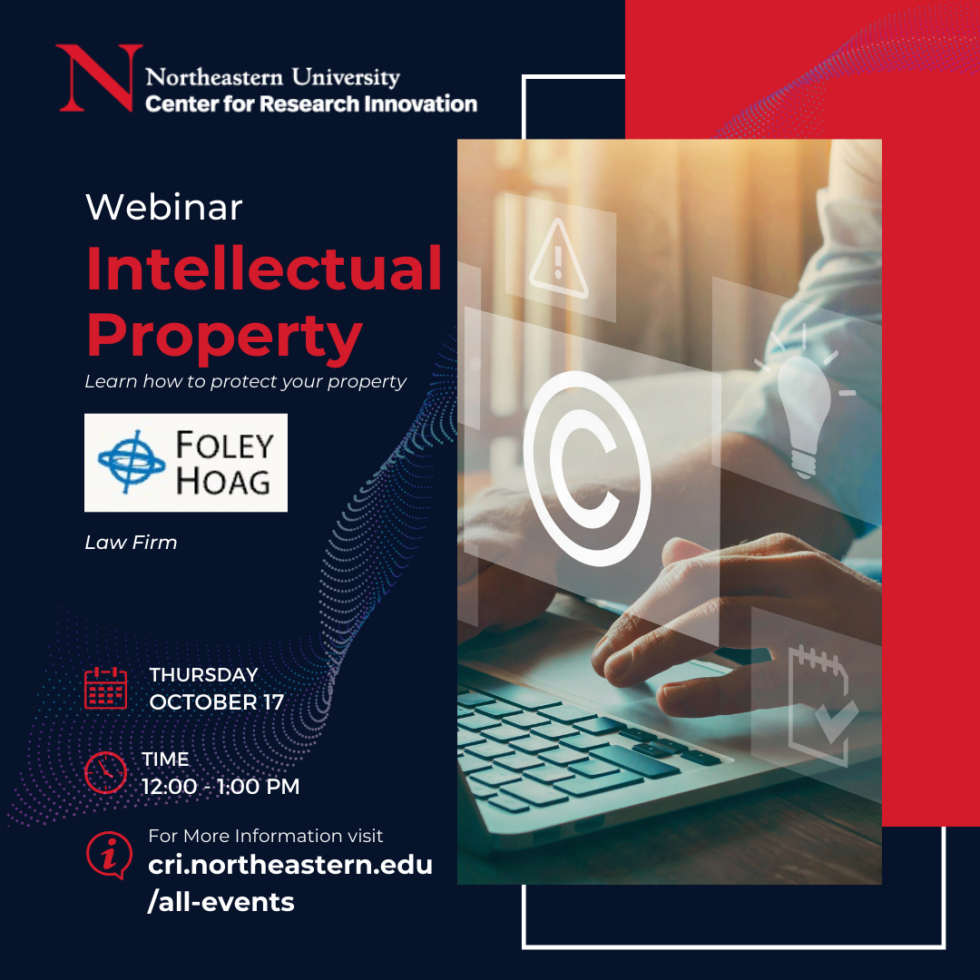THE CENTER FOR RESEARCH INNOVATION (CRI)
INNOVATE
PROTECT
LICENSE
A CATALYST FOR IMPACT
CRI serves as the nexus of inspiration and invention, empowering Northeastern innovators and entrepreneurs to transform their boldest ideas into societal impact. Explore how the CRI translates the university’s most dynamic research into real-world results.
OUR MISSION
The CRI pairs solution-oriented research with real-world needs for the enrichment of society through the protection, acceleration, and commercialization of Northeastern innovation.
PROTECTING INGENUITY
Safeguarding Northeastern ingenuity is a fundamental responsibility of CRI. The CRI proactively identifies world-changing innovation within Northeastern’s labs and protects it through robust, strong, defensible, and commercially viable patents.
SUPPORTING SPINOUTS
The CRI staff knows startups: from new company creation, to launch, to innovation in the deep science and technology space. The CRI is here to foster the success of your high-impact innovations. Connect to relevant resources at the right time – such as startup support service providers, investors, and strategic partners.
INFORMING RESEARCH
The CRI can facilitate connections to relevant industry partners. In addition, if you are seeking industry feedback to guide the direction of your research, the CRI can assist with the early stages of customer discovery.
CULTIVATING DIVERSITY
The CRI supports Northeastern’s Vision of Diversity and mindfully cultivates a culture of diversity and inclusion by ensuring that CRI resources and services are made available to all and are delivered by team members committed to equity: no matter one’s gender, color, race, religion, national origin, or socio-economic status.
CRI BY THE NUMBERS
MEASURING SUCCESS
Through hard work, ingenuity, and teamwork, check out how the CRI has helped Northeastern grow as a leader in research commercialization. The CRI was founded in 2011 and these numbers are designed to illustrate the impact that the CRI has had on research and innovation in the past 12 years.
PROGRAM Spotlight
THE SPARK FUND
The Spark Fund helps Northeastern researchers bridge the gap between promising lab results and demonstrating a commercially viable prototype. Our grants and programs catalyze state-of-the-art technologies, advancing Northeastern inventions through prototyping, validation, and industry input.

Our faculty members hail from local industry leaders, including Boeing, Amazon, Twitter, and Microsoft, and we work to develop research collaborations with companies and institutions in the area.
MILESTONES
- A Northeastern CPI team is working with Microsoft Research to improve internet of things security.
- Northeastern engineering researchers are working with the nonprofit Pacific NorthWest Economic Region and other collaborators on a project to make the region’s vital bridge network more resilient to earthquake damage.
- Faculty and graduate students in Boston and Seattle collaborated with researchers at the Institute for Systems Biology to design a data management and analytics system for Project Feed 1010.

Northeastern’s Roux Institute is designed to spur innovation, build talent, and drive economic growth in Portland, the state of Maine, and the Northeast. Partnerships—with industry, academia, and government—set our education and research model apart.
A LOCAL AND GLOBAL POWERHOUSE
The Roux Institute partners with Maine companies to equip the workforce with essential tech skills and advance research and development.



